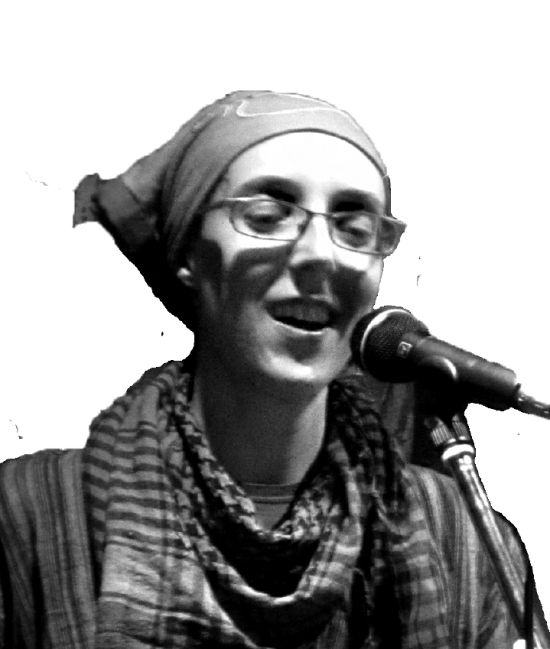Over the years, I’ve written this column about a myriad of genres of music, many that would call themselves radical, and others that might be surprised to find themselves included here. But there are so many different and beautiful ways in which people use music to agitate for social change, to energise activists and to support communities of oppressed and marginalised people.
For some musicians, simply singing in your native language can be a radical act.
For others, posting a song criticising a government or regime online is the radical act.
And, for many people, drumming or singing in the streets in support of freedom and justice for all is the radical act.
We all live in different contexts and with different histories, and how our music works to change the world around us is of course affected by this.
Broadly speaking, across the whole spectrum from lyric-heavy folk songs or rap to short, snappy street songs, there are songs that say ‘yes’ and songs that say ‘no’.
As campaigners, it’s important for us to have both – clear ‘yes’ and clear ‘no’ messaging.
When we say ‘no’ to war, we don’t just say ‘yes’ to peace, we say ‘yes’ to more detailed elements of the peaceful world we want to build that people can really connect with.
When we say ‘no’ to the capitalist exacerbation of the climate crisis, we say ‘yes’ to green energy and investing in the skills that will help workers transition – so that when we say ‘no’, workers know that we are also giving them something they can say ‘yes’ to. At least that’s the aim.
When the far right tried to terrorise our black and brown friends and neighbours across the length of England in August, we of course shouted (and sang) ‘NO’ pretty loudly.
People gathered all over the UK to respond, to make visible that we are a diverse community and everyone is welcome, that we won’t tolerate the fear-mongering by a noisy and dangerous minority.
But we sang ‘YES’ pretty loudly too – we sang ‘refugees are welcome here’ and ‘we are far more united and have much more in common with each other than things that divide us’ (a musical setting of a quote from Jo Cox).
On one level, I’m sure we all wanted the far right to hear us, to see that many more people oppose their hatred. But probably more importantly for those of us who are white, we want our black and brown neighbours to know that we are here to loudly support them, and that whether any of us were born here or have migrated here, for any reason, we are all welcome and we are all part of the same community. We all have the same right to be here and to feel and be safe in the place we all call home.
Rock Against Racism emerged in the mid-1970s as a response to the rise of the far-right National Front across the UK. The campaign explicitly brought together black and white musicians and music fans to show a united front against the hatred that was becoming emboldened into public spaces, often empowered by racist rhetoric from some politicians and some media (sound familiar?).
Rock Against Racism was a no-brainer – all popular music stands on the shoulders of black cultural heritage, and we are all so much richer for it. So in this context it doesn’t have to be explicitly radical words that we all sing along to – it was simply the act of turning up to a gig entitled ‘Rock Against Racism’ that made the point.
In the 2000s, during a rise in BNP (British National Party) activity, far-right activists tried to claim ownership of English folk music, and a swift and beautiful response from the folk community brought together the ‘Folk Against Fascism’ campaign.
It was a simple one – at folk gigs across the UK, performers and punters wore a ‘Folk Against Fascism’ badge or sticker, and made visible that folk music is for everyone, and that the history of these islands is one of migration and diverse heritage that feeds into our music.
A compilation CD was produced, and fairly soon the campaign wasn’t needed any more. There simply weren’t any folk singers lining up to sing at BNP gatherings!
The campaign that has been organising along these lines in more recent years, Love Music Hate Racism, brings people together at popular music events that enable musicians and music fans across a whole spectrum of genres to explicitly support an anti-racist platform.
It’s no surprise that this organisation is flourishing again now, as more and more people are realising how important it is that we speak out about racism in our communities. Almost everyone enjoys music recreationally in some way, so the more spaces that enable us to gather together and really live the ‘yes’ of anti-racist community building, the better for all of us.
The single word that Pete Seeger changed in that most famous of civil rights anthems was from ‘I’ to ‘we’. And ‘I shall overcome someday’ became ‘we shall overcome someday’.
Perhaps it’s fitting to end with the same quote that I shared in my first column nine years ago. It was Pete Seeger who said: ‘Participation, that’s what’s gonna save the human race’, and what better tool than music to help us find such beautiful harmonic possibilities, a harmony that can only exist because of our diversity. A Luta Continua. The struggle continues.


